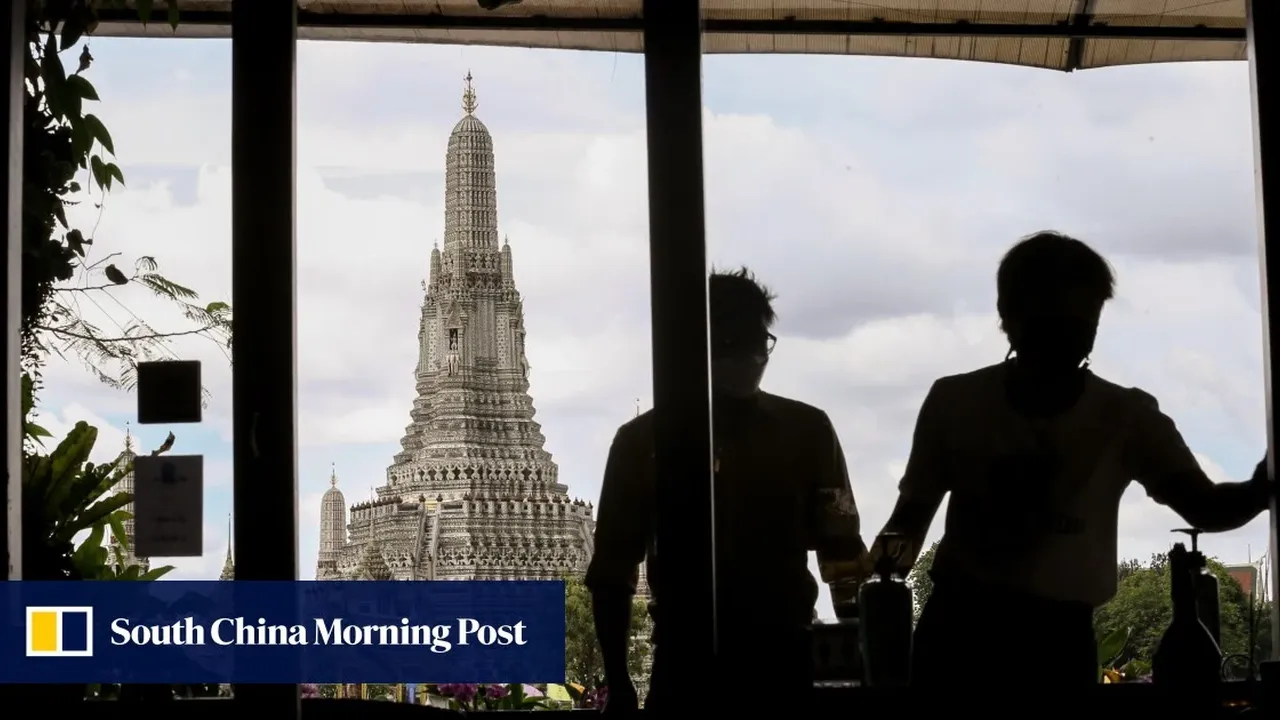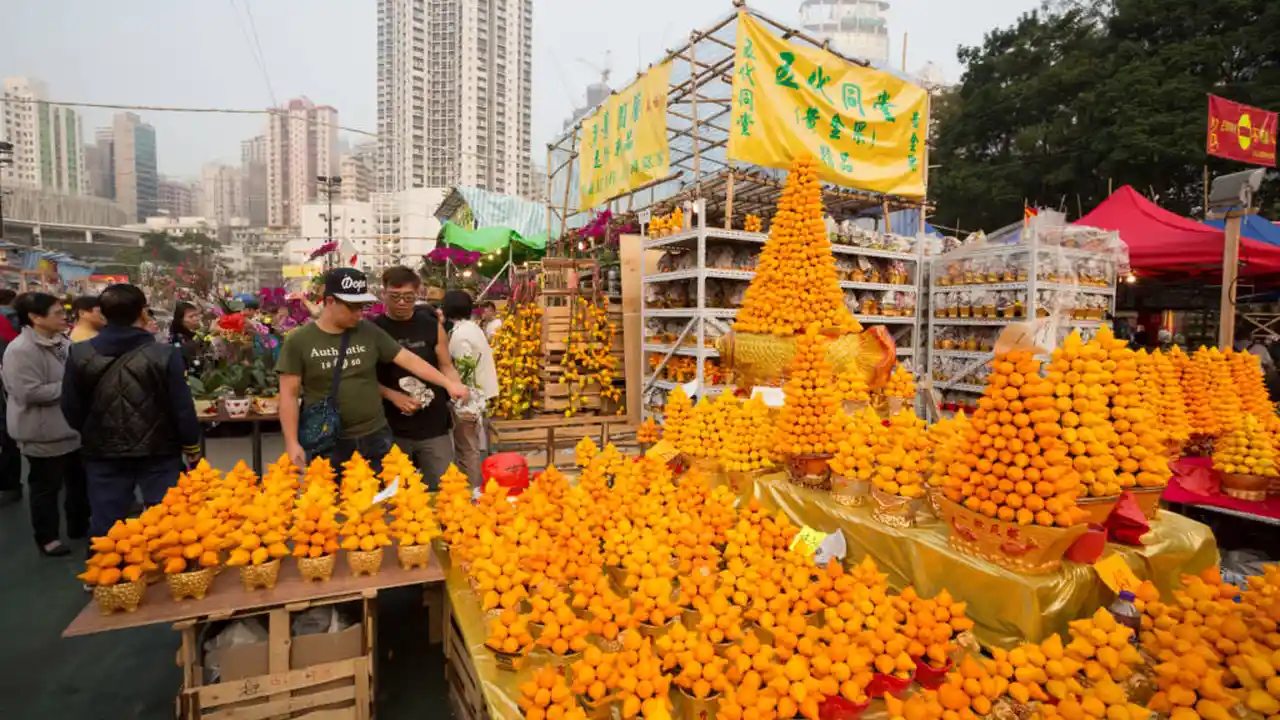7 Common Scams to Avoid in Hong Kong: A US Tourist's Guide

Introduction: Hong Kong Travel Scams - What US Tourists Need to Know
So, you're heading to Hong Kong! Awesome choice. It's a vibrant city with amazing food, stunning views, and a unique blend of cultures. But like any major tourist destination, it's got its share of scams. Don't let a few bad apples ruin your trip. This guide will arm you with the knowledge to spot and avoid the most common scams targeting US tourists in Hong Kong. Think of it as your anti-scam shield!
Scam #1: The Tea Ceremony Scam – Overpriced Tea and Pushy Sales Tactics
This one's a classic. You're approached by friendly locals (usually young, attractive, and speaking good English) who invite you to a traditional tea ceremony. Sounds harmless, right? Wrong. The tea itself is often low-quality, and the prices are ridiculously inflated. They'll pressure you to buy tea leaves and other products at exorbitant prices. The atmosphere is designed to make you feel obligated to purchase something.
How to Avoid It: Politely decline any invitations from strangers offering a "free" tea ceremony. If you're genuinely interested in a tea ceremony, research reputable tea houses beforehand and go on your own terms. Avoid places that are heavily promoted on the street.
Scam #2: The Fake Monk Begging Scheme – Spotting Imposters and Protecting Your Wallet
You'll see them everywhere – individuals dressed as Buddhist monks asking for donations. While genuine monks do sometimes collect alms, many of these are imposters. They'll often approach you aggressively and try to guilt you into giving money. The money rarely goes to legitimate charities.
How to Avoid It: A general rule is to avoid giving money to anyone soliciting donations on the street, especially if they're overly persistent. Legitimate charities typically have established donation channels.
Scam #3: Counterfeit Goods – Electronics, Designer Items, and Where to Buy Authentic Products
Hong Kong is known for its shopping, but beware of counterfeit goods, especially electronics and designer items. You might find a "deal" that seems too good to be true, but chances are it's a fake. These products are often low-quality and may not function properly. You're also supporting illegal activities.
How to Avoid It: Stick to reputable retailers when buying electronics, designer goods, or other high-value items. Avoid street vendors selling these items, especially in touristy areas like Temple Street Night Market. If the price seems significantly lower than what you'd find in a legitimate store, it's probably a fake.
Product Recommendation: If you're looking for reliable electronics, consider shops in areas like Causeway Bay and Mong Kok that are known for authorized retailers. For example, Fortress and Broadway are reputable chains. Before buying, always check the product's warranty and ensure it's valid in your home country.
Product Comparison: Let's say you're looking for noise-canceling headphones. You might be tempted by a knock-off brand selling for HKD 500. However, a genuine pair of Sony WH-1000XM5 headphones, priced around HKD 3000 at Fortress, offers superior sound quality, noise cancellation, and a longer lifespan. While the initial investment is higher, the long-term value and performance are worth it.
Scam #4: Currency Exchange Rip-offs – Understanding Exchange Rates and Hidden Fees
Avoid exchanging currency at unofficial exchange booths, especially those located in tourist hotspots. They often offer poor exchange rates and charge hidden fees, leaving you with significantly less money than you expected.
How to Avoid It: Use reputable banks or ATMs to exchange currency. Check the exchange rate beforehand and be aware of any fees. Credit cards often offer competitive exchange rates, but check with your bank about foreign transaction fees.
Scam #5: Taxi Fare Overcharging – Meters, Routes, and Alternative Transportation Options
Some taxi drivers may try to overcharge tourists by taking longer routes, not using the meter, or adding extra charges. This is more common in touristy areas or late at night.
How to Avoid It: Ensure the driver turns on the meter at the start of the journey. If they refuse, find another taxi. Use a GPS app like Google Maps to track the route and make sure they're not taking a significantly longer way. Consider using alternative transportation options like the MTR (subway), buses, or Uber/Lyft (though Uber is more prevalent in Hong Kong). The Octopus card is a convenient way to pay for public transport.
Product Recommendation: Get an Octopus card! You can purchase it at the airport or any MTR station. It simplifies paying for public transport and even some retail purchases. It's reloadable and saves you the hassle of carrying small change. The initial purchase price is around HKD 150, with a refundable deposit.
Scenario: Imagine you need to get from Central to Tsim Sha Tsui. A taxi might cost you HKD 80-120 depending on traffic. However, taking the MTR is a much cheaper and faster option, costing around HKD 12 and taking only a few minutes.
Scam #6: Gemstone Scams – Fake Gems, Inflated Prices, and Where to Buy Authentic Jewelry
Be wary of buying gemstones from street vendors or unofficial shops, especially if they offer incredibly low prices. These are often fake or low-quality stones sold at inflated prices. They may try to pressure you into buying by claiming it's a "rare" or "lucky" stone.
How to Avoid It: Only buy gemstones from reputable jewelers with a proven track record. Ask for a certificate of authenticity and have the stone appraised independently. If a deal seems too good to be true, it probably is.
Scam #7: Internet and Wi-Fi Scams – Unsecured Networks and Data Theft Prevention
Using free public Wi-Fi networks can be risky, as they are often unsecured and vulnerable to hackers. This can expose your personal information, such as passwords and credit card details.
How to Avoid It: Avoid using public Wi-Fi for sensitive transactions like online banking or shopping. Use a VPN (Virtual Private Network) to encrypt your internet traffic and protect your data. Consider purchasing a local SIM card with a data plan or using a portable Wi-Fi hotspot.
Product Recommendation: A portable Wi-Fi hotspot, like the GlocalMe G4 Pro, allows you to create a secure Wi-Fi network wherever you go. It supports multiple devices and eliminates the need to rely on potentially unsafe public Wi-Fi. Prices range from HKD 800-1500 depending on the model and data plan.
Product Comparison: A local SIM card offers another option for staying connected. You can purchase a prepaid SIM card with a data plan for around HKD 100-200, offering a certain amount of data for a specific period. The advantage of a portable Wi-Fi hotspot is that it can be shared with multiple devices and often offers more flexible data plans. However, a SIM card is usually more affordable for short trips and single users.
Using a VPN: Setting up a VPN on your phone or laptop is also a great idea. Services like NordVPN or ExpressVPN can protect your data when using public Wi-Fi. A subscription costs about $5-15 per month, but often provides peace of mind.
Remember, a little awareness goes a long way. By being informed and cautious, you can enjoy your trip to Hong Kong without falling victim to these common scams. Have a fantastic time exploring this amazing city!
:max_bytes(150000):strip_icc()/277019-baked-pork-chops-with-cream-of-mushroom-soup-DDMFS-beauty-4x3-BG-7505-5762b731cf30447d9cbbbbbf387beafa.jpg)






